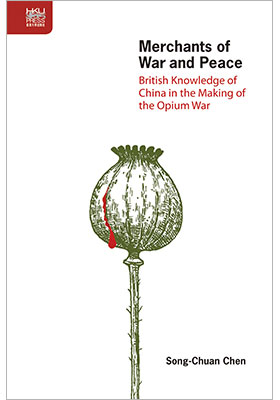Merchants of War and Peace
British Knowledge of China in the Making of the Opium War
(英商之戰:英國對華之認知與鴉片戰爭)
ISBN : 978-988-8390-56-4
January 2017
240 pages, 6″ x 9″, 1 b&w map
- HK$375.00
Ebooks
Merchants of War and Peace challenges conventional arguments that the major driving forces of the First Opium War were the infamous opium smuggling trade, the defence of British national honour, and cultural conflicts between ‘progressive’ Britain and ‘backward’ China. Instead, it argues that the war was started by a group of British merchants in the Chinese port of Canton in the 1830s, known as the ‘Warlike party’. Living in a period when British knowledge of China was growing rapidly, the Warlike party came to understand China’s weakness and its members returned to London to lobby for intervention until war broke out in 1839.
However, the Warlike party did not get its way entirely. Another group of British merchants known in Canton as the ‘Pacific party’ opposed the war. In Britain, the anti-war movement gave the conflict its infamous name, the ‘Opium War’, which has stuck ever since. Using materials housed in the National Archives, UK, the First Historical Archives of China, the National Palace Museum, the British Library, SOAS Library, and Cambridge University Library, this meticulously researched and lucid volume is a new history of the cause of the First Opium War.
‘This is an outstanding piece of original research, breaking new ground in our understanding of Anglo-Chinese relations. Its meticulous analysis of “British Knowledge of China in the Making of the Opium War” is especially significant—often it was perception and not so much reality that could have led to war!’ —John Y. Wong, emeritus professor, University of Sydney, author of Deadly Dreams: Opium and the Arrow War (1856–1860) in China
‘War is often not just the clash of arms, but the conflict of different ways of knowing and seeing. Song-Chuan Chen’s powerful new book examines the way in which British colonial knowledge of China was constructed. In doing so, he provides important new insights into empire, power, and violence during the era of the Opium War.’ —Rana Mitter, professor, University of Oxford, author of China’s War with Japan, 1937–45: The Struggle for Survival




